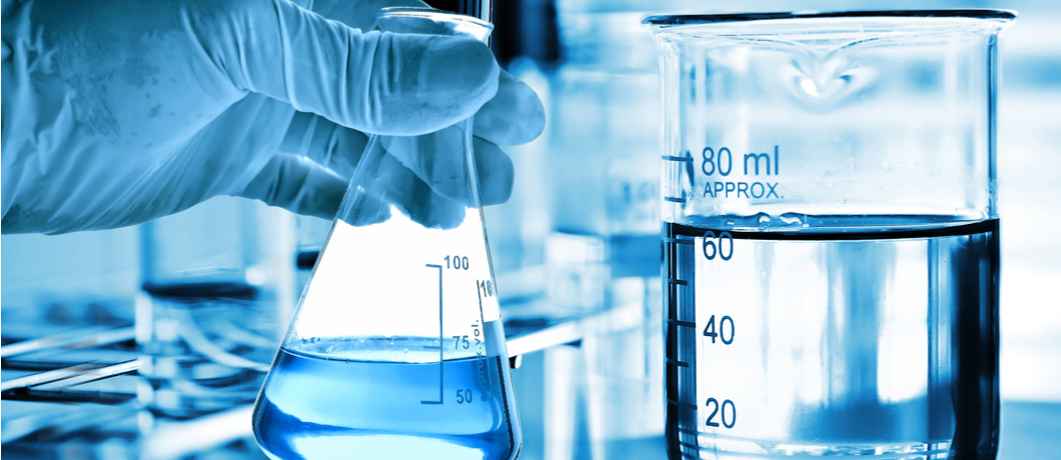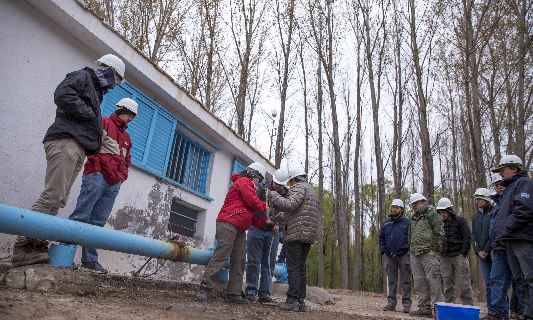Hydrologist
Who Is A Hydrologist?
Yes – there is a field that lets you combine your passions perfectly! Hydrology lets you pursue your love for both geography and the environment. It is a branch that you can seriously consider making a career in.
What exactly is hydrology, you ask? Well, put in the simplest words, it is the study of water. ‘Hydro’ = ‘water’ and ‘ology’ = ‘subject/branch of study’! Get it?! The people who study/practice hydrology are called hydrologists.
Like every other real life career, this one may sound simple but it is pretty heavy duty too. Hydrologists study the different types of water systems that exist on the earth. This may includes all its forms – rainwater, groundwater, snow, glaciers, oceans, rivers, lakes… you get the gist! They try to understand the movements and patterns of these water bodies.
They evaluate the quality, quantity, nature and other properties of water and water systems. They also analyse the influences of water and its environment on each other.
You must be wondering why hydrologists do what they do. Well, as we all know, water is one of the most essential elements of our planet. In fact, it is one of the primary reasons we’re still all alive. It’s simple – we need water to survive! The work of hydrologists is extremely important for exactly that reason. Their studies and experiments ensure that good quality water is available to everyone on the planet. This does not only include all human beings, but also all other organisms like animals and plants.
Their work helps in solving water-related issues and optimizing the available resources for the same. You remember studying the water cycle in school? Understanding this vital natural process was probably possible due to the efforts of a hydrologist. Maybe it wasn’t a full-fledged career back then, but you get point right?
Pro Tip: The ‘discovery’ of the modern theory of the water cycle is credited to Bernard Palissy. He apparently first published a version of this theory back in 1580 CE!
Roles & Responsibilities
Studying the properties of water and water bodies, like the flow or pollution levels. For example, take the water of the Arabian Sea. You may have to figure out its volume, salt content and other properties.
Getting data from the tests, studies and experiments.
Analysing all this data to understand environmental impact of the water body. For instance, you might have to study data about the pollution of River Ganga.
Finding different ways to reduce negative effects like sedimentation or erosion. For example, you might have to study the water systems in Chennai to help prevent flooding.
Using programs and technology for improving water systems. You can determine future water supplies, prevent water-related calamities and more.
Evaluating water-related projects like dams, irrigation systems, hydroelectric power plants, etc. You also might have to oversee wastewater treatment facilities.
Maintaining detailed reports and preparing presentations of studies and findings.
Using special geographic equipment to collect specific data. You may have to install and operate it on your own or supervise technicians who will do it.
Working closely with scientists, engineers, public officials and other specialists. Take a new community water conservation project for instance. It requires the combined efforts of local officials, engineers and hydrologists.
Take the Mentoria career assessment, to find out how well-suited you are as a Hydrologist.
Discover your Ideal future
Get expert guidance and mentorship towards your perfect fit.
What Skills Will I Need To Have To Do This Job Well?
As exciting as this sounds, there are some things you’ll need to learn to do the job right:
TECHNICAL SKILLS AND KNOWLEDGE
This one’s quite obvious. Hydrology is one of the most specialised fields in geography. So it requires great amount of scientific and geographic expertise. You need to know your concepts and theories well to be able to apply them wherever necessary.
ANALYTICAL SKILLS
You need to be able to critically analyse all the collected data. This data might have come from on-field study or laboratory tests. The final result and findings depend entirely on your analysis, so it is very important.
COMMUNICATION SKILLS
Hydrologists are required to prepare detailed reports of their research. They need to present these finding to government officials, general public and others. They also work in diverse teams along with engineers, scientists and technicians. In any case, communication is vital. Thus, good communication skills are required to do well as a hydrologist.
CRITICAL-THINKING SKILLS
Hydrologists need to critically study a lot of things. They need to think about potential risks to water supplies, threats to the environment and more. They then also have to develop plans to manage it all accordingly.
PHYSICAL STRENGTH AND IMMUNITY
Most hydrologists have a lot of on-field work to do! They may have to hike to the remotest of locations. They may have to wade through deep waters to collect samples. They may also have to stay soaked in water for long periods of time. All of this, while carrying heavy equipment! Thus, they need to be very fit and have high stamina and immunity.
What Will My Workplace Look Like?
The potential workplaces for a hydrologist are incredibly diverse! You could be working on-field or in a laboratory. You could also be working in an office space with a computer or in a classroom. If you are on the field, you will be in water most of the times. You will be hiking and stepping into streams and lakes to collect samples.
You will study the samples and work with equipment in laboratories. In office, you will mainly work on computers. You will analyse data, use different softwares and models, write reports and create presentations.
You will work in colleges and universities if you take up teaching opportunities. If you are working for government agencies, your workplace will differ accordingly. Many roles also require a great deal of international and domestic travel. This is usually a full-time job.
What Is My Scope For Career Growth As A Hydrologist?
At the entry level, you are most likely to work as a research assistant or technician. You may work under an individual hydrologist or as a part of a team. Here you might get the chance to work on-field, in the lab or in the office. You can expect promotions as you gain more experience or increase your expertise.
You can go on to become a program manager or a project leader. You might also get a senior research position. You can then lead teams onto the field or in lab experiments. You may also be required to work with other specialists like meteorologists or biologists.
You may also choose to pursue teaching at colleges and universities. It all depends on your experience, your skills and what you want to do.
Pro Tip: Hydrologists usually pursue further specialisations. For instance, they could specialise in certain water sources. They could be groundwater hydrologists or surface water hydrologists.
Thinking of a career as a Hydrologist? Take the Mentoria assessment & talk to our career counsellors to get personalized step-by-step guidance for your future career path.
How Much Will I Get Paid?
The exact number will depend on where you’re working, your education, skill set and internship experience. But we can give you a general idea.
A hydrologist in India can earn between Rs. 2,27,000 to Rs. 12,45,000 annually. These amounts vary according to your type of work, your location and your organisation. They also depend on factors like your experience, your qualifications, etc.
Okay, I'm sold. This is amazing

STEP 1: Class XI-XII/Junior College
Go to junior college. Be sure to study subjects like geography, physics, mathematics, chemistry and biology among others in your XI-XII.

STEP 2: Graduate Degree
You can pursue a general graduation degree like B.Tech. or B.E. as specialisation at this level is not offered by any of the reputed institutions. If you are extremely clear, you can opt for a course like B.Tech, (Civil Engineering). Here, you will at least get to study Hydrology as a module. You can look to pursue similar courses from some of the best institutions.

STEP 3: Internship
You can probably take up a summer internship for some hands-on experience. You might be able to assist teams on-field or in labs. Even some experience in the office can be helpful to you as a student.

STEP 4: Land a Job
You can try and get an entry-level job as a fresher. However, in Hydrology, postgraduate degrees give you an advantage. They bring you better opportunities. You can still give it a try, on the basis of your bachelor’s degree and your internship experience.
Discover your Ideal future
Get expert guidance and mentorship towards your perfect fit.


